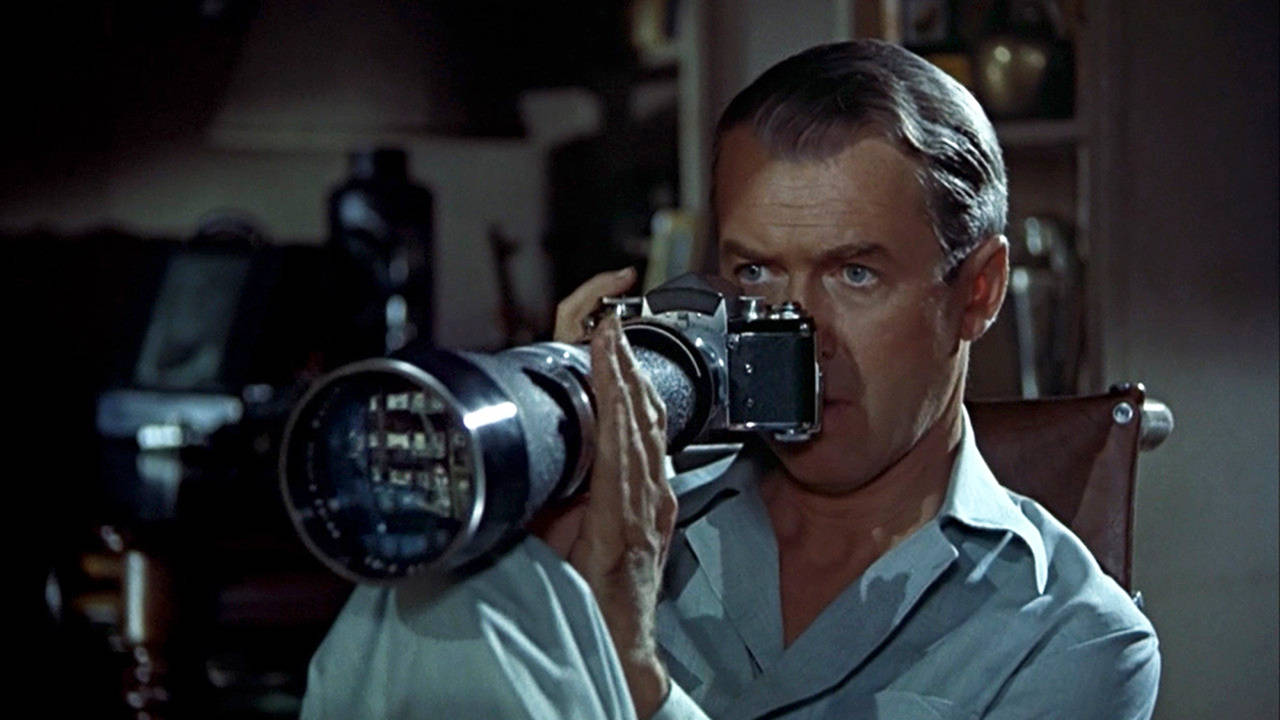Among its many virtues, Alfred Hitchcock’s “Rear Window” offers one of the greatest opening scenes in film history.
For the first 2 minutes and 20 seconds following the opening credits, a camera scans a New York City apartment while the lead character naps. During that sequence, it is revealed that the apartment faces a courtyard, that it is a torrid midsummer day and that the hero is a magazine photographer recovering from a broken leg suffered while he was shooting an auto race.
All this information is imparted without a single word being spoken. By employing this device, Hitchcock probably saved himself 10 minutes of storytelling.
The remainder of the film is worth watching as well. The 1954 thriller will be shown Saturday night and Sunday afternoon at Hoquiam’s 7th Street Theatre, as part of its Silver Screen Classics series.
The sleeping man is L.B. “Jeff” Jeffries (played by James Stewart), who is in the final week of recuperation from his injury and is restless to return to work. His only regular visitors are his fashion model girlfriend Lisa Fremont (Grace Kelly) and Stella, a sardonic insurance company nurse played by Thelma Ritter.
Out of boredom, Jeff beings looking out the window at his neighbors in the apartment complex — including a struggling songwriter, a ballet dancer, a lonely spinster and a costume jewelry salesman. Gradually, he becomes convinced that the salesman (Raymond Burr, heavily made up to resemble an old Hitchcock antagonist, producer David O. Selznick) has murdered his nagging wife.
The evidence against the salesman is highly circumstantial (and remains so even after some late plot revelations). A police detective friend dismisses Jeff’s suspicions out of hand. But Jeff is able to convince the initially skeptical Lisa and Stella to take an active role in the investigation. That puts both of them — and the incapacitated photographer — in peril.
Although highly regarded by both audiences and critics, “Rear Window” is seldom ranked as the ultimate Hitchcock movies. To my mind, however, it comes the closest to seamlessly blending all the traditional elements associated with the Master of Suspense.
It works as a pure thriller, but those who see it as a commentary on voyeurism also have plenty of ammunition for that view. There’s a fair amount of humor (much of it supplied by the scene-stealing Ritter) and a compelling if complicated love story.
Despite Lisa’s beauty, compassion and fame, Jeff keeps trying to avoid commitment, claiming she is “too perfect.” The straight-laced 46-year-old Stewart and the chic Kelly, then in her mid-20s, generate a surprising amount of heat in their love scenes, although the happily married Stewart was reportedly one of the few Kelly co-stars who was not romantically involved with the actress off-screen.
Hitchcock shoots virtually the entire film from Jeff’s apartment, but it never seems claustrophobic. The director’s creativity extended to the casting of small roles. The ballet dancer is played by an actual dancer and the songwriter by Ross Bagdasarian, the creator of the Chipmunks — thus supplying the elusive missing link between Alfred Hitchcock and Alvin the chipmunk.
One secret of Hitchcock’s success in his films of the 1950s was the way he alternated his two favorite stars, Stewart and Cary Grant. Just as Stewart would have been all wrong as the dashing, womanizing ad man Grant played in “North by Northwest,” Grant would have come across as a dirty old man in “Rear Window,” particularly when Jeff uses binoculars to get an up-close-and-personal look at his neighbors. It takes Stewart’s everyman persona to make his character palatable.
Stewart masters a subtly difficult role, reacting to situations that the audience could see but the actor couldn’t at the time of filming. Kelly’s performance is under-rated. She’s perfectly cast as a glamorous model, but she also demonstrates her acting chops in scenes in which Jeff tries to discourage her plans for marriage.
As with many Hitchcock films, this plot contains some occasional gaps in logic. Jeff would be in far less danger if he bothered to lock his apartment door once in a while. It is unlikely that an insurance company nurse would make evening house calls, as Stella does during the climactic scene. For that matter, how many 40-something men would want to back away from a romance with Grace Kelly?
While many of Hitchcock’s best movies, such as “Psycho,” were marred by flat endings, “Rear Window” delivers the goods up to the closing credits. In another dialogue-free sequence, all the loose ends are tied up in the final scene — which concludes with deliciously ironic humor.
That’s “Rear Window,” a great movie from beginning to end.



